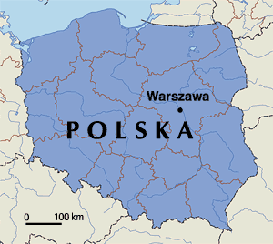 DEC are hosting a workshop on Information Discovery and Data Analytics Made Easy facilitated by Prof. Michael R. Berthold, Konstanz University, Germany on 18 May.
DEC are hosting a workshop on Information Discovery and Data Analytics Made Easy facilitated by Prof. Michael R. Berthold, Konstanz University, Germany on 18 May.
TIME: 18th May 2011, 10.00 am – 1.00 pm,
PLACE: PG10, Poole House, Talbot Campus
The purpose of the event is to present methods and tools that can be used in processing large datasets and how to discover knowledge from them. Michael Berthold is a coordinator of the project BISON that is a research project funded by EC under the 7FP. He is also one of the founders of KNIME which is a user-friendly and comprehensive open-source data integration, processing, analysis, and exploration platform. So the goal of the workshop is also to start collaboration with Konstanz University and find out more about EC 7FP projects.
The workshop is open to all BU staff and PhD students as well. It will be of interest to all people who are involved in intelligent data processing. For sure it will be of interest for DEC staff: SMART Technology Research Centre, Creative Technology Research Centre and Software Systems Research Centre. I bielieve also that people from School of Applied Sciences will be interested.
Research areas that it covers include: intelligent data analysis, predictive modelling, complexity science, complex adaptive systems, knowledge discovery from data.
SCHEDULE:
10.00-11.00 – From Pattern Discovery to Discovery Support: Creativity and Heterogeneous Information Networks
11.00-11.30 – coffee break
11.30-12.30 – KNIME. Integrating Data, Tools, and Science
12.30-13.00 – Q&A Session
13.00-14.00 – Lunch
Prof. Michael R. Berthold’s Bio
After receiving his PhD from Karlsruhe University, Germany Michael Berthold spent over seven years in the US, among others at Carnegie Mellon University, Intel Corporation, the University of California at Berkeley and – most recently – as director of an industrial think tank in South San Francisco.
Since August 2003 he holds the Nycomed-Chair for Bioinformatics and Information Mining at Konstanz University, Germany where his research focuses on using machine learning methods for the interactive analysis of large information repositories in the Life Sciences. Most of the research results are made available to the public via the open source data mining platform KNIME.
M. Berthold is Past President of the North American Fuzzy Information Processing Society, Associate Editor of several journals and the President of the IEEE System, Man, and Cybernetics Society. He has been involved in the organization of various conferences, most notably the IDA-series of symposia on Intelligent Data Analysis and the conference series on Computational Life Science. Together with David Hand he co-edited the successful textbook “Intelligent Data Analysis: An Introduction” which has recently appeared in a completely revised, second edition. He is also co-author of the brand-new “Guide to Intelligent Data Analysis” (Springer Verlag) which appeared in summer 2010.
For more information about workshop or to book a place, please contact: Katarzyna Musial (kmusial@bournemouth.ac.uk)
 Watch this excellent short video from BU’s Professor Bodgan Gabrys on the Computer Intelligence EU grant (INFER project) used to develop predictive modelling that’s applicable to multiple industries.
Watch this excellent short video from BU’s Professor Bodgan Gabrys on the Computer Intelligence EU grant (INFER project) used to develop predictive modelling that’s applicable to multiple industries.
















 Upcoming opportunities for PGRs – collaborate externally
Upcoming opportunities for PGRs – collaborate externally BU involved in new MRF dissemination grant
BU involved in new MRF dissemination grant New COVID-19 publication
New COVID-19 publication Conversation article: London Marathon – how visually impaired people run
Conversation article: London Marathon – how visually impaired people run MSCA Postdoctoral Fellowships 2024
MSCA Postdoctoral Fellowships 2024 Horizon Europe News – December 2023
Horizon Europe News – December 2023